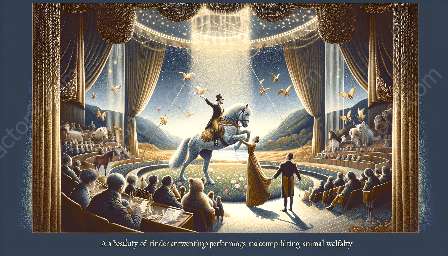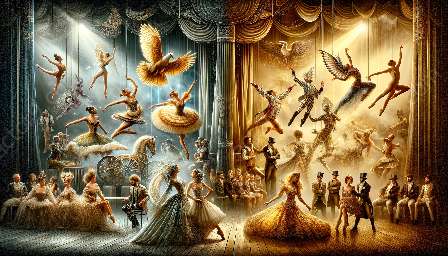Circus arts, known for their awe-inspiring performances, are a dynamic and captivating art form that demands exceptional flexibility and agility. The combination of strength, grace, and precision in circus arts requires performers to possess extraordinary levels of flexibility and agility.
The Importance of Flexibility and Agility in Circus Arts:
Being flexible and agile in circus arts is crucial for executing a wide range of movements, from acrobatics and contortion to aerial acts and hand balancing. Circus performers constantly push the boundaries of what the human body can achieve, and it is the exceptional flexibility and agility that allow them to create the breathtaking spectacles that audiences love.
Flexibility:
Flexibility plays a pivotal role in circus arts, as it allows performers to contort their bodies into mesmerizing poses, achieve deep stretches, and move with fluidity and grace. Moreover, flexibility is essential for injury prevention and overall joint health, enabling performers to withstand the physical demands of their craft.
Agility:
Agility is equally important, as it enables circus artists to move with precision, balance, and quick reflexes. Whether navigating the tightrope or performing daring flips and spins, agility is the foundation of many awe-inspiring stunts in circus arts.
The Health Benefits of Circus Arts:
Circus arts offer a myriad of health benefits, and the emphasis on flexibility and agility contributes significantly to these advantages. Practicing circus arts can enhance physical fitness, improve mental wellbeing, and promote overall health and vitality.
Physical Fitness:
Participating in circus arts activities, such as aerial silks, trapeze, and juggling, provides a full-body workout that improves strength, flexibility, and cardiovascular endurance. The combination of strength training and dynamic movements fosters a high level of physical fitness, while enhancing coordination and spatial awareness.
Mental Wellbeing:
Engaging in circus arts can also have a positive impact on mental health. The focus required to master complex skills, the exhilaration of successfully performing daring feats, and the camaraderie within circus communities can all contribute to improved self-confidence, reduced stress, and enhanced overall wellbeing.
Promoting Overall Health and Vitality:
The holistic nature of circus arts, which integrates physical, mental, and emotional aspects, promotes overall health and vitality. From boosting creativity and self-expression to fostering a sense of fulfillment, circus arts offer a unique avenue for individuals to prioritize their health and wellbeing.
Flexibility and Agility: Cornerstones of Circus Arts
In conclusion, flexibility and agility are the cornerstone elements of circus arts, allowing performers to push the boundaries of possibility and captivate audiences with their stunning displays of strength, grace, and skill. Additionally, embracing circus arts can lead to a myriad of health benefits, making it an enriching and rewarding pursuit for both performers and enthusiasts.


































